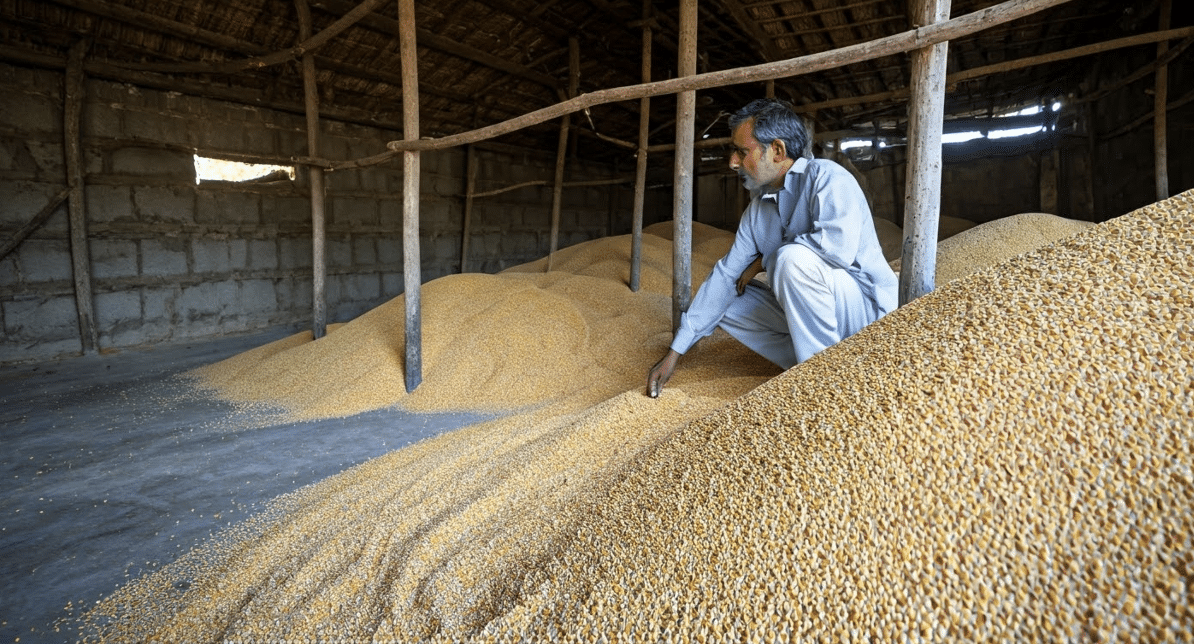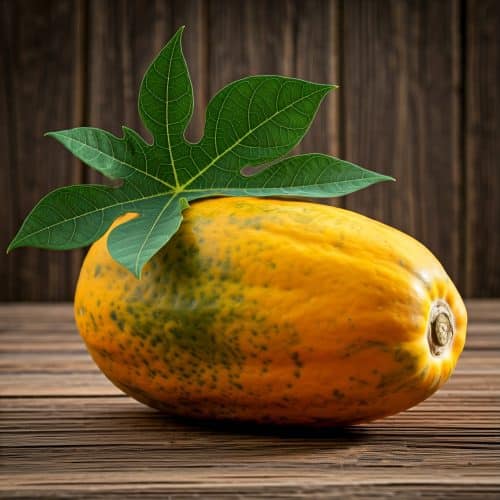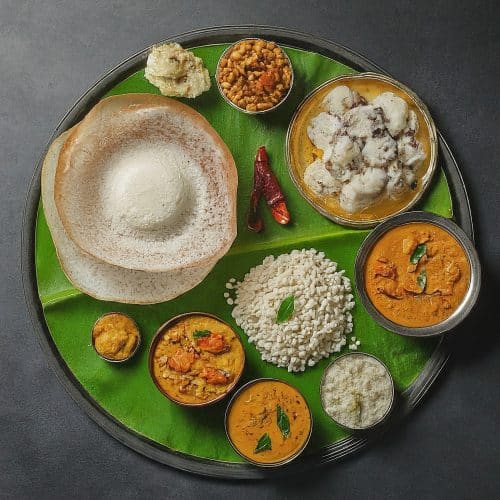Effective grain storage is crucial to preserving freshness and nutrition, especially in India, where agriculture supports millions. However, pests, mould, and moisture often lead to significant losses, and choosing between traditional and modern storage methods can be challenging.
In this blog, we’ll explore the best storage techniques—from traditional silos and hermetic bags to modern, temperature-controlled solutions—and share practical tips for safe home storage. Whether you’re a farmer, trader, or looking to store grains at home, this guide will help you tackle common challenges and make informed decisions. Let’s explore the world of grain storage and secure a better harvest!

Food Grain Storage Warehouse
What are the Factors that Affect Grain Storage?
Effective grain storage is essential for distributors to maintain the quality and value of harvested crops. Several factors can impact how grains are stored, leading to potential spoilage or loss. These factors can be broadly classified into biotic and abiotic categories.
Biotic Factors
Biotic components are living organisms that can directly affect the quality of stored grains. The two primary biotic threats are insects and rodents. Insects, such as grain weevils and beetles, can infest stored grains, feeding on them and causing damage. Rodents, including rats and mice, pose a similar risk by chewing through storage containers and contaminating grains with waste. Both of these pests can result in significant losses if not properly controlled.
- Insect pests are an issue: A major challenge in grain storage is dealing with insect pests like weevils, beetles, moths, and mites, which multiply rapidly in stored grains. They not only reduce the quantity but also contaminate the grains with droppings and webbing, making them unfit for consumption.
- Rodent infestations: This is another serious issue, as rats and mice damage grains and pollute them with droppings, urine, and hair, raising significant food safety concerns.
- Fungal growth: It, especially in humid conditions, poses an additional risk. It can discolour grains, create unpleasant flavours, and produce harmful mycotoxins that endanger both human and animal health.
Abiotic Factors
Abiotic factors, on the other hand, refer to environmental conditions that influence grain storage. These include:
- Temperature: Grains are highly sensitive to temperature fluctuations. High temperatures can accelerate the degradation of grains, leading to spoilage. Conversely, low temperatures may inhibit pest activity but can also promote moisture condensation, leading to mould growth.
- Humidity: Excessive humidity is one of the most significant factors in grain spoilage. High moisture levels create a favourable environment for mould, fungi, and bacterial growth, which can ruin grains quickly. Low humidity, however, can help maintain grain integrity by reducing moisture buildup.
- Moisture Content: The moisture content of grains is another crucial factor. Grains with higher moisture levels are more susceptible to mould, rot, and insect infestation. It’s essential to ensure grains are adequately dried before storage to prevent these issues and maintain their quality for longer periods.
Here is a quick reference to the ideal moisture content and temperature for storing common grains:
| Type of Grain | Ideal Moisture Content(%) | Ideal Storage Temperature(°C) |
| Wheat | 13 – 15 | 13 – 15 |
| Rice | 12 – 14 | 13 – 17 |
| Maise | 13 – 15 | 12 – 16 |
| Millet | 12 – 14 | 10 – 15 |
| Barley | 12 – 14 | 10 – 15 |
| Oats | 11 – 13 | 9 – 13 |
| Sorghum | 11 – 13 | 11 – 15 |
| Rye | 12 – 14 | 10 – 14 |
| Quinoa | 10 – 12 | 8 – 12 |
| Buckwheat | 11 – 13 | 10 – 14 |
| Lentils | 12 – 14 | 10 – 15 |
| Chickpeas | 11 – 13 | 9 – 13 |
| Peas | 12 – 14 | 10 – 15 |
| Soybeans | 12 – 14 | 11 – 16 |
Also read: Useful tips to extend the life of foods in the monsoons
Storage Duration
The length of grain storage directly affects its quality. Longer storage periods increase the risks of moisture buildup, pest infestations, and nutritional degradation. Even under ideal conditions, grains naturally age and deteriorate over time. Therefore, it is essential to consider the expected storage duration while selecting a storage solution.
For short-term household storage, simple methods like using airtight containers can suffice. However, longer durations required for commercial purposes might call for more sophisticated solutions like hermetic storage or climate-controlled warehouses.
Understanding and managing these factors is key to ensuring that grains remain fresh and safe for consumption or resale. By addressing both biotic and abiotic risks, grain storage can be optimised for maximum preservation.
Importance of Efficient grain storage
Efficient grain storage is vital for preserving the quality, nutritional value, and economic viability of harvested crops. Proper storage methods, including effective aeration, help minimise losses, extend shelf life, and ensure grains remain safe for consumption and trade, thus preventing food poisoning. Inadequate storage conditions, such as exposure to pests, moisture, and fluctuating temperatures, can lead to spoilage, reducing both the quantity and quality of grains. Advanced solutions like airtight containers, temperature-controlled silos, and hermetic bags protect grains from these threats, retaining their freshness and nutritional content for longer periods.
Efficient storage is also crucial for food security, particularly in regions that rely heavily on agriculture. It ensures a consistent availability of food supply throughout the year, even during off-seasons or periods of scarcity, which is important to combat issues like malnutrition. Moreover, it supports economic stability by allowing grains to be stored and sold at optimal prices, mitigating price fluctuations. By reducing the need for pesticides and chemicals, modern storage techniques also help lower production costs and minimise environmental impact, making them essential for both farmers and consumers.
Methods of Grain Storage
Grain storage can be managed through both traditional and modern methods, each offering distinct advantages based on available resources, scale, and environmental conditions.
Traditional Methods
Traditional grain storage techniques have been used for generations, especially in rural areas. While reliable, these methods are often more labour-intensive and may require frequent monitoring of grain in a bin. Common traditional methods include bamboo cribs, underground pits lined with straw, and open stack methods.
- Silos and Threshing Floors: In some rural areas, small silos made from mud or brick provide a cool, dry environment for grain storage. Threshing floors, typically outdoors, are used for air-drying grains before storage, preventing moisture buildup that can lead to spoilage.
- Jute or Cloth Bags: In regions where modern storage solutions are unavailable, farmers often use jute or cloth bags to store smaller quantities of grain. These bags, while effective for short-term storage, are not airtight and offer limited protection against moisture and pests.
- Earthenware Pots and Baskets: In many traditional communities, grains are stored in earthenware containers or woven baskets. These methods allow for air circulation, which helps prevent spoilage, but require regular inspection to ensure the grains remain in good condition.
Modern Methods
Alt text: Modern Grain Silos
Modern grain storage methods use advanced technology to improve preservation and reduce losses due to pests,

Modern Grain Silos
temperature fluctuations, and moisture. These methods are particularly beneficial for large-scale operations and large-scale storage but can also be applied to smaller-scale storage, emphasising the importance of large-scale storage solutions in enhancing efficiency.
- Hermetic Storage Bags: These airtight bags create a sealed environment that keeps moisture and air out, ensuring long-term freshness for grains. They are particularly effective for small-scale and home storage, providing excellent protection against pests and spoilage.
- Temperature-Controlled Silos: Large commercial operations rely on temperature-controlled silos, which regulate climate conditions to maintain an optimal environment for stored grains. These silos prevent spoilage and minimise the risk of pest infestations by controlling both temperature and humidity levels.
- Bulk Storage Systems: Sophisticated bulk storage systems use sensors to monitor key factors like temperature, humidity, and pest activity. These systems ensure that grains are stored under optimal conditions, reducing losses and maintaining grain quality over time. They are ideal for farmers and traders handling large quantities of grain.
- Refrigerated Storage: For high-value or speciality grains, refrigerated storage offers precise control over temperature, which is essential for maintaining the quality of grains over extended periods. This method is particularly useful when long-term preservation is required, as it slows down degradation processes.
Each storage method, whether traditional or modern, has its strengths and is suited to different needs and circumstances. Understanding the best options for your specific situation ensures better preservation of grains and minimises losses.
Conclusion
Good grain storage is very important for its large storage capacity. It helps maintain the quality and amount of harvests, especially in places like India, where the climate can be very different. New techniques, like hermetic storage, along with old ways and new technology, help deal with common grain storage problems, particularly those related to high moisture content. It is very important to understand how moisture and damage can affect storage for good preservation. If farmers use strong storage methods that fit local needs, they can make their grain last longer and improve their profits. Checking the storage regularly and changing it as needed is key for the best results. Invest in new storage solutions to protect grains and improve farming results.
Frequently Asked Questions
What is the right method for storing food grains?
The best method for the storage of food grains involves ensuring proper drying to reduce moisture, using airtight containers like hermetic bags or silos for the storage of large quantities of food grain, and maintaining a cool, dry environment to control temperature and humidity. Regular pest management is also essential for long-term preservation.
Are hermetic storage solutions cost-effective for small farmers?
Hermetic storage, especially hermetic bags, is a good choice for small-scale farmers. The first cost may look high. However, the long-term benefits are great. They help cut down grain losses and keep quality. This makes them a smart investment.
How often should store grains be inspected for quality?
Regular checks are important to stop storage losses and keep the quality of food good. It is best to inspect stored grains at least once a month. This is really important in humid seasons. You should look for signs of infestation, moisture, or any changes in quality.













3 comments
Boric Acid Poweder 100 gms. Mixed With 100 kg of Wheat grains is Harmful Or Not ?
Please Give Answer
Boric Acid Powder is harmful to humans and is a dangerous poison. Please do not mix it with food grains.
Good job and ideas especially on how to preserve grains using the locally available resources e.g. neem leaves.